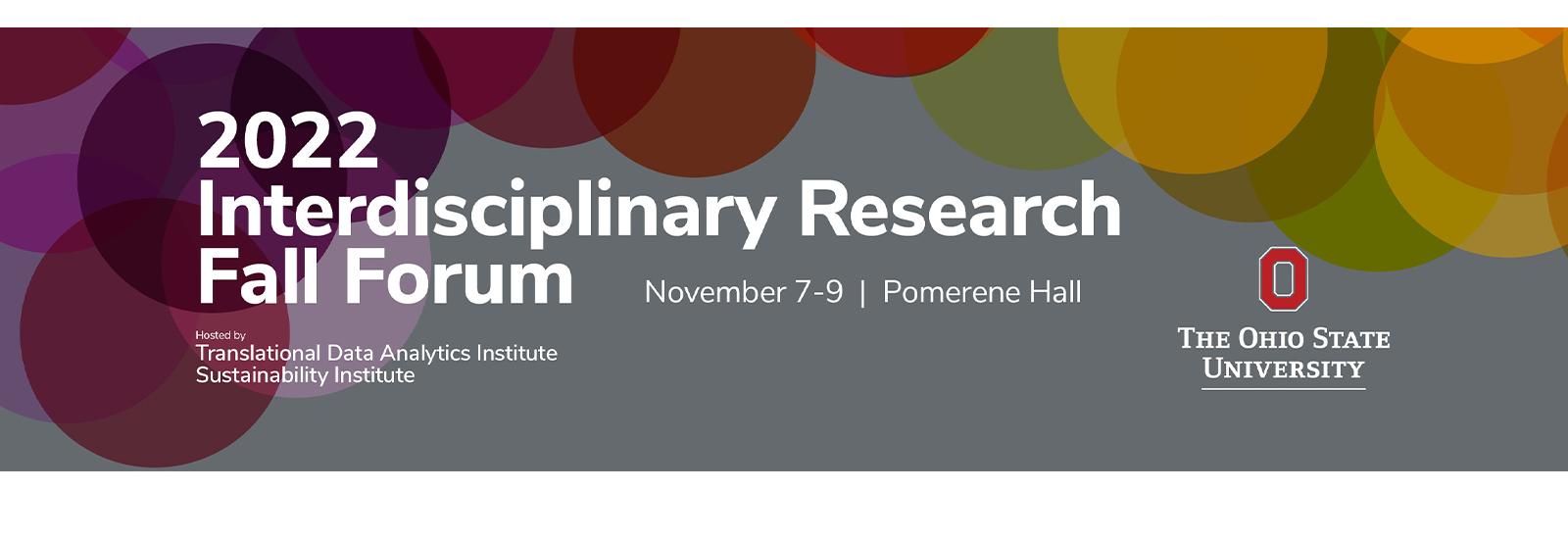TDAI and the Sustainability Institute invite you to explore the space where disciplines and ideas intersect and transform.
November 7-9, 2022 | Pomerene Hall
Monday, November 7
9:00 a.m. - 6:30 p.m.
Student Research Posters on display
301 Pomerene Hall
The Interdisciplinary Research Fall Forum poster session will feature work by graduate students and senior undergrads producing an interdisciplinary thesis. Posters will be on view throughout three-day forum, and poster presenters will be present to discuss their work during the judging session on Tuesday, Nov. 8, 11:30 a.m. - 1:30 p.m.
Information for Student Presenters:
Posters should be no larger than 48 inches wide (122 centimeters). Printing services are available at several Columbus campus locations.
Key Dates:
- Poster Drop-Off: Oct. 31-Nov. 3 between 9 a.m. - 4 p.m. in 175 Pomerene Hall
- Judging Session: Nov. 8, 11:30 a.m. - 1:30 p.m., in 301 Pomerene Hall. (Lunch provided for presenters.)
- Optional - Poster Pick-up: Nov. 10 between 9 a.m. - 4 p.m. in 175 Pomerene Hall
Questions? Email Pamela Faust at faust.17@osu.edu.
9:00 - 11:30 a.m.
Workshop: Community Engagement Data Analytics
320 Pomerene Hall
Description: Are you tired of building data-intensive dashboards that very few people use? Are you worried that your policy simulation model will not reach the right decision makers? Participants in this workshop will learn and apply unique community-engagement methods that can help them more effectively translate their data analytics tools and models into practice. Participants will also discover how to incorporate community feedback from start to end of their analytics/modeling process leading to a more consequential impact on the people and communities they serve. While the focus of this workshop is on public health, the methods and techniques are widely applicable to other domains.
Hosted by:
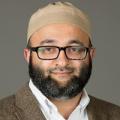
|
Ayaz Hyder, PhD TDAI Core Faculty Assistant Professor, Environmental Health Science, OSU College of Public Health |

|
Amy Vinturella, ScD Program Manager and Technical Lead, Battelle Memorial Institute Founder, The Solver Space |
Workshop: Interdisciplinary Team Science
350 Pomerene Hall
Description: Funding agencies worldwide, including the NSF, are placing greater emphasis on interdisciplinary research. For example, the NSF has identified “Growing Convergence Research” as one of its 10 Big Ideas. True convergence research requires the development of interdisciplinary scientific teams. It can be daunting for researchers to break free of their departmental silos to pursue an interdisciplinary team-based approach. This workshop provides an overview of team science, formation of teams, and skill development to support successful teams.
Presenters:

|
Jeff Agnoli, Senior Liaison, Ohio Innovation Exchange, Ohio State |
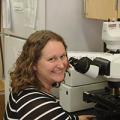
|
Alison Bennett, PhD, Assistant Professor in Evolution, Ecology and Organismal Biology, Ohio State |
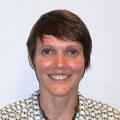
|
Charlene Brenner, JD, Program Director at The STEAM Factory, Ohio State |

|
Courtney Price, Research Program Manager, Sustainability Institute, Ohio State |
11:30 a.m. -1:30 p.m.
Research Partners Table/Poster Session & Lunch
320 Pomerene Hall
Join colleagues for lunch and meet representatives from interdisciplinary research resources throughout Ohio State. Featuring:
- Ohio State Resources and Partners:
- Battelle Center for Science, Engineering and Policy
- Center for Urban and Regional Analysis
- Center of Microbiome Science
- CHRR
- Environmental and Social Sustainability Lab
- ERIK Talent and Team Development
- Foods for Health
- Global Water Institute
- Infectious Diseases Institute
- STEAM Factory
- Sustainability Institute
- Translational Data Analytics Institute
- University Libraries
- Ohio Supercomputer Center
- Partners from Japan:
- Nagoya University
- University of Tsukuba
Registration for the table/poster session is open; however, lunch registration is closed.
Info Session: OSU Interdisciplinary Research Pilot and Planning Funding Opportunities
320 Pomerene Hall
Staff from TDAI, the Sustainability Institute and Foods for Health and other partners will be on hand at the Research Partner Session to answer questions and share details about FY23 research pilot funding opportunities related to climate, precision nutrition and more.
2:00 - 3:30 p.m.
Forum Welcome & Keynote
320 Pomerene Hall
Forum Welcome
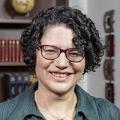
|
Dr. Tanya Berger-Wolf Director of the Ohio State Translational Data Analytics Institute Professor of Computer Science Engineering; Electrical and Computer Engineering; Evolution, Ecology, and Organismal Biology |

|
Dr. Elena Irwin Faculty Director, Sustainability Institute Distinguished Professor of Food, Agricultural and Environmental Sciences in Economics and Sustainability |
Keynote: "Technology, Innovation and Partnerships at the National Science Foundation"
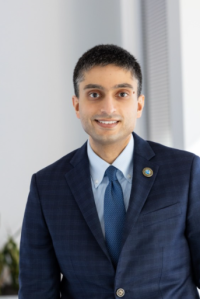
Dr. Erwin Gianchandani
Assistant Director of the Directorate for Technology, Innovation and Partnerships
Abstract: Dr. Gianchandani will explore a unique opportunity at the National Science Foundation to strengthen the synergies between exploratory and use-inspired research to meet today’s pressing societal challenges. He will provide an overview of the new Directorate for Technology, Innovation and Partnerships at NSF, and describe how this directorate is advancing critical technologies, accelerating the translation of these technologies from lab to society, and engaging the nation’s broad and diverse population in this work. Dr. Gianchandani will articulate a vision for how the directorate aims to collaborate with the broader community to expand and transform the nation’s research and innovation ecosystem, nurture the future workforce, and grow the nation’s competitiveness and security for decades to come.
About the speaker: Dr. Erwin Gianchandani is the U.S. National Science Foundation’s assistant director for Technology, Innovation and Partnerships, leading the newly established TIP Directorate.
Previously Gianchandani was the NSF deputy assistant director for Computer and Information Science and Engineering, twice serving as acting assistant director for CISE. Gianchandani’s leadership and management of CISE included the formulation and implementation of the directorate's $1 billion annual budget, strategic and human capital planning, and oversight of day-to-day operations for a team of over 130. He has led the development and launch of several new NSF initiatives, including the Smart & Connected Communities program, Civic Innovation Challenge, Platforms for Advanced Wireless Research, and the National Artificial Intelligence Research Institutes.
Before joining NSF in 2012, Gianchandani was the inaugural director of the Computing Community Consortium, providing leadership to the computing research community in identifying and pursuing bold, high-impact research directions such as health information technology and sustainable computing.
Gianchandani has published extensively and presented at international conferences on computational systems biology. He holds a bachelor's degree in computer science and master's and doctoral degrees in biomedical engineering, all from the University of Virginia.
4:00 - 5:00 p.m.
TDAI Session - Responsible Data Science: "An Automatic Finite-Sample Robustness Metric: Can Dropping a Little Data Change Conclusions?"
320 Pomerene Hall
Speaker:
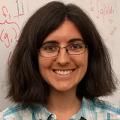
|
Dr. Tamara Broderick |
Abstract: One hopes that data analyses will be used to make beneficial
decisions regarding people's health, finances, and well-being. But the
data fed to an analysis may systematically differ from the data where
these decisions are ultimately applied. For instance, suppose we
analyze data in one country and conclude that microcredit is effective
at alleviating poverty; based on this analysis, we decide to
distribute microcredit in other locations and in future years. We
might then ask: can we trust our conclusion to apply under new
conditions? If we found that a very small percentage of the original
data was instrumental in determining the original conclusion, we might
expect the conclusion to be unstable under new conditions. So we
propose a method to assess the sensitivity of data analyses to the
removal of a very small fraction of the data set. Analyzing all
possible data subsets of a certain size is computationally
prohibitive, so we provide an approximation. We call our resulting
method the Approximate Maximum Influence Perturbation. Our
approximation is automatically computable, theoretically supported,
and works for common estimators. We show that any
non-robustness our metric finds is conclusive. Empirics demonstrate
that while some applications are robust, in others the sign of a
treatment effect can be changed by dropping less than 0.1% of the data--even in simple models and even when standard errors are small.
SI Session: "Building collaborations between Central State University and Ohio State University around land and water systems"
350 Pomerene
Description: Session will include talks from Central State University and Ohio State University researchers highlighting areas of mutual interest and existing collaborations included aquaculture, watershed modeling, climate change and harmful algal blooms.
Panelists:
- Dr. Ramanitharan Kandiah, Professor of Environmental Engineering and Chair, Central State
- Dr. Haley Kujawa, PhD candidate in Environmental Science Graduate Program, Ohio State
- Dr. Krishnakumar Nedunuri, Professor of Environmental Engineering, Central State
- Dr. Ajay Shah, Professor in Food, Agricultural and Biological Engineering, Ohio State
- Dr. Xiaofang Wei, Professor of Geography, GIS, and Remote Sensing; Central State
Moderator: Dr. Jay Martin, Distinguished Professor in Food, Agricultural and Biological Engineer, Ohio State
5:00 - 6:30 p.m.
Networking Reception
320 Pomerene Hall
Registration for the networking reception has closed.
Tuesday, November 8
9:00 a.m. - 4:30 p.m.
Student Research Posters on display
301 Pomerene Hall
Students: See above for how to register your poster
9:00 - 10:00 a.m.
TDAI Session: "AI For Small and Large Molecules: From Foundational Insight to Understanding and Discoveries"
320 Pomerene Hall
Speaker:
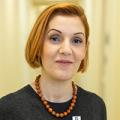
|
Dr. Amarda Shehu |
About Dr. Shehu's talk: Biology has undergone many disruptions and revolutions that have opened or redirected entire domains of scientific enquiry. From the wet-laboratory experiments of Anfinsen, which showed that protein tertiary structure was largely encoded in the amino-acid sequence, to the seminal work of Scheraga, Karplus, Levitt, and Warshel that brought computation alongside the wet laboratory for molecular discoveries, to AlphaFold2’s recent revolution on structural biology, we have made great strides in advancing molecular biology research and its impact on understanding and improving human health. Yet, linking the chemical, biological, and phenotypical space continues to challenge us with diverse instantiations of wicked problems. In this talk, I will present some of my laboratory’s work on three wicked problems. What unites them all is our increasing utilization of deep neural networks as foundational computational architectures. First, I will show how we are advancing the ability of deep graph latent models to explore protein structure space and generate physically-realistic tertiary structures, extending our understanding of proteins from static to dynamic molecules. Then I will show how novel disentangled graph variational autoencoder models provide us with molecular property control and allow us to advance small molecule generation, an important problem for drug discovery and biotechnology. Finally, I will zoom out of molecular structure and cast our focus on the broad protein space. I will relate some of our recent and ongoing work on protein language models that are allowing us to elucidate the evolutionary, structural, and functional organization across protein space.
SI Session: "Issues in Energy and Environmental Justice and Equity"
350 Pomerene Hall
This session highlights the need to address the disproportionate consequences of energy systems.
Panelists:
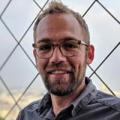
|
Dr. Jeffrey Jacquet, Associate Professor in School of Environment and Natural Resources, Ohio State |
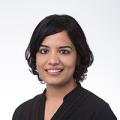
|
Dr. Smitha Rao, Assistant Professor in Social Work, Ohio State |

|
Dr. Anais Delilah Roque Antonetty, Assistant Professor in Anthropology, Ohio State |
Moderator:

|
Dr. Jeffrey Bielicki, Associate Professor in Civil, Environmental and Geodetic Engineering, Ohio State |
10:30 - 11:30 a.m.
"Arts and Humanities and Wicked Problems"
320 Pomerene Hall
Through dialogue with moderators, three faculty from the arts and humanities describe how their methods, and practices respond to today’s wicked problems. Arts and humanities methods and practices foreground deep observation, listening, empathy, diverse viewpoints, and imaginative possibilities—modes that are essential to ethical decision-making and knowledge equity. Specifically, panelists will discuss how they operationalize artistic, historical, and humanistic approaches to (a) temporal framings of wicked problems (b) what counts as data, and (c) the dissemination of knowledge in and beyond the classroom. The session will conclude by brainstorming with the audience how to meaningfully involve the arts and humanities in cross-disciplinary research projects.
Panelists:

|
Dr. Hasan Kwame Jeffries, Associate Professor of History, Ohio State (he/him) |

|
Amy Youngs, MFA, Associate Professor of Art and Graduate Studies Chair, Ohio State (she/her) |
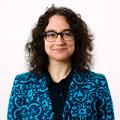
|
Dr. Hannah Kosstrin, Associate Professor of Dance, Ohio State (she/her) |
Moderators:
- Dr. Wendy Hesford, Professor of English; Director, Global Arts + Humanities Discovery Theme, Ohio State (she/her)
- Dr. Christa Teston, Associate Professor of English; Vice Chair, Rhetoric, Composition & Literacy Studies, Ohio State
11:30 a.m. - 1:30 p.m.
Lunch and Research Poster Judging
301 Pomerene Hall
Student poster presenters will be present to discuss their work.
Registration for the poster session is open; however, lunch registration is closed.
2:00 - 3:00 p.m.
"Implementing Land-based Climate Solutions"
320 Pomerene Hall
Session Description/Abstract: Land-based climate solutions are actions aimed at increasing carbon storage or reducing greenhouse gas emissions through natural processes occurring in vegetation and soils. It is increasingly recognized that such solutions are critical to solving climate challenges, and recent governmental policies in the United States further incentivize such actions on private lands. Achieving such solutions requires interdisciplinary approaches to address the data and measurement needs, resolve the social and behavioral challenges, and identify the key economic and policy drivers. Our panelists will each briefly highlight some of the opportunities and challenges associated with these types of approaches, and then engage in a panel discussion with Q&A.
Panelists:

|
Dr. Fernando Silveira, Professor in Genetics, Ecology and Evolution; Federal University of Minas Gerais, Brazil |
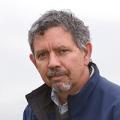
|
Dr. Doug Jackson-Smith, Professor and Associate Director in School of Environmental and Natural Resources, Ohio State |
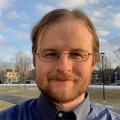
|
Dr. Andrew Perrault, Assistant Professor in Computer Science and Engineering, Ohio State |
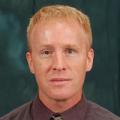
|
Dr. Brent Sohngen, Professor in agricultural, environmental and development economics, Ohio State |
Moderator:

|
Dr. Robyn Wilson, Professor in School of Environment and Natural Resources, Ohio State |
3:30 - 4:30 p.m.
TDAI Session: "Data Science and the Social and Behavioral Sciences"
320 Pomerene Hall
Has data science had a big impact on social science, or vice-versa? If so, how? If not, why not? What possibilities are there for greater integration between the two? Join us to hear social scientists and computer scientists offer their perspectives on these questions.
Panelists:

|
Dr. Tanya Berger-Wolf, Professor in Computer Science & Engineering, Evolution, Ecology & Organismal Biology, Electrical & Computer Engineering; Faculty Director, Translational Data Analytics Institute, Ohio State |
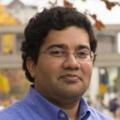
|
Dr. Srinivasan Parthasarathy, Professor of Computer Science & Engineering, Biomedical Informatics, Ohio State
|
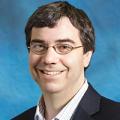
|
Dr. Michael Colaresi, William S. Dietrich II Professor of Political Science, Research & Academic Director for Pitt Cyber, University of Pittsburgh |
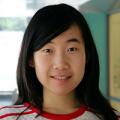
|
Dr. Xueru Zhang, Assistant Professor in Computer Science & Engineering, Ohio State |
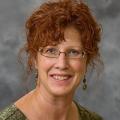
|
Dr. Kimmarie Murphy, Professor of Anthropology, Kenyon College |
Moderator:

|
Dr. Sean Downey, Associate Professor in Anthropology, Ohio State |
SI Session: "Smart and Resilient Communities"
350 Pomerene Hall
Panelists:

|
Dr. Andre Barbosa, PhD, Professor in Structure Engineering, School of Civil and Construction Engineering, Oregon State University |

|
Brandi Whetstone, Sustainability Officer, Mid-Ohio Regional Planning Commission |
Moderators:

|
Dr. Abdollah Shafieezadeh
SI Faculty Research Lead for Smart and Resilient Communities |
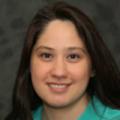
|
Dr. Guzin Bayraksan
Professor and Associate Chair for Research, Integrated Systems Engineering, Ohio State University |
Wednesday, November 9
9:00 - 11:30 a.m.
Student Research Posters on display
301 Pomerene Hall
Students: See above for how to register your poster
9:00 - 10:00 a.m.
"Potential of new technologies to rapidly decarbonize urban transportation"
320 Pomerene Hall
In this panel, we will discuss how technologies in passenger and freight transportation may improve environmental outcomes. Panelists include scholars and practitioner in air, truck, and micro mobilities.
Panelists:

|
Mike Roeth, Executive Director of North American Council for Freight Efficiency, and Director of RMI Trucking. www.runonless.com |
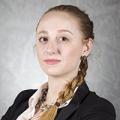
|
Dr. Amber Woodburn-McNair, Assistant Professor in City and Regional Planning, Ohio State |
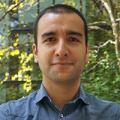
|
Basar Ozbilen, Presidential Fellow and PhD candidate, City and Regional Planning, Ohio State |
10:30 - 11:30 a.m.
Closing Session
320 Pomerene Hall
Keynote Speaker
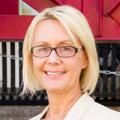
|
Dr. Dorota Grejner-Brzezinska Vice President for Knowledge Enterprise Office of Knowledge Enterprise Ohio State University |

